Are you considering a trip to South Africa, are just beginning to plan your trip and looking for helpful South Africa travel tips? Perhaps you still have countless questions swirling around in your head? Questions like:
Do I need a visa to enter South Africa?
When is the best time to visit South Africa?
♀️ Is South Africa safe for tourists?
Do I need to get vaccinated before traveling?
Do I need a local SIM card?
How much should I tip?
It’s great that you’ve landed on our site. We’ve compiled our best travel tips for South Africa from 6 fantastic South Africa trips. If you still have any questions, please write them in the comments. We will try to answer you as quickly as possible. And now, enjoy browsing!
- 1. Why we love South Africa!
- 2. Best time to travel to South Africa
- 3. Time difference
- 4. Arrival & entry
- 5. Travel duration
- 6. Itineraries
- 7. Rental cars & left-hand traffic
- 8. Booking accommodation
- 9. Activities & excursions
- 10. Money & currency
- 11. Tipping
- 12. Health
- 13. Travel insurance
- 14. Power adapters & load shedding
- 15. SIM card for South Africa
- 16. eSim for South Africa
- 17. Travel budget & costs
- 18. Safety in South Africa
- 19. Recommended Apps & Tools
- 20. Packing List for South Africa
- Travel Reading & Travel Guides
1. Why We Love South Africa!
We consider South Africa to be one of the most diverse countries, offering not only unique landscapes but also a wealth of experiences and adventures. Why do we never tire of this country? Because South Africa never ceases to surprise us, and each province has its own unique charm.
You can easily travel around South Africa on your own and don’t need to book a guided tour. Compared to other African countries, the country is very well-developed in terms of tourism. You can expect good road conditions, great accommodations, top restaurants and cafés, and plenty of shopping opportunities.
10 Reasons to Travel to South Africa
Diverse Landscapes: From wild coasts and endless deserts to lush vineyards, stunningly beautiful beaches, imposing mountain ranges, and vast savannas.
Rich Wildlife: In South Africa, you have a good chance of experiencing the “Big Five” – lions, elephants, leopards, rhinos, and buffalo – up close, as well as numerous other fascinating species in the many national parks and reserves.
Cultural Diversity: South Africa is known for its cultural diversity. The mix of colonial influences, modern urban cultures, and indigenous traditions has earned the country the nickname “Rainbow Nation.” With 11 official languages, South Africa is the third country with the most official languages in the world.
Delicious Cuisine: South African cuisine combines influences from indigenous peoples, European colonial powers, Malaysian and Indian immigrants, offering a unique blend of flavors and cooking styles. The cities are home to many restaurants, ranging from fine dining to popular street food markets.
♀️ Adventurous Activities: Countless exciting adventures and activities await you in South Africa, including surfing, kiting, hiking, abseiling, canyoning, safaris, diving, bungee jumping, paragliding, and much more.
Warm Hospitality: The people of South Africa are hospitable and open to tourists. South Africans are very proud of their “Ubuntu” philosophy, which emphasizes compassion, selflessness, charity, and solidarity.
Beautiful beaches: The country offers some of the most beautiful beaches in the world, stretching along the coasts of the Atlantic and Indian Oceans.
Cool city vibes: You have to experience Cape Town. The vibe of this city is simply very special and distinctive. The city is not too big and not too small and offers everything your heart desires.
Great value for money: South Africa offers excellent value for money. Great accommodations, unique experiences, and beautiful landscapes await you without breaking the bank.
No jet lag: In South Africa, the annoying problem of jet lag does not apply. So you can start your exploration tour right away, without having to waste time acclimatizing.
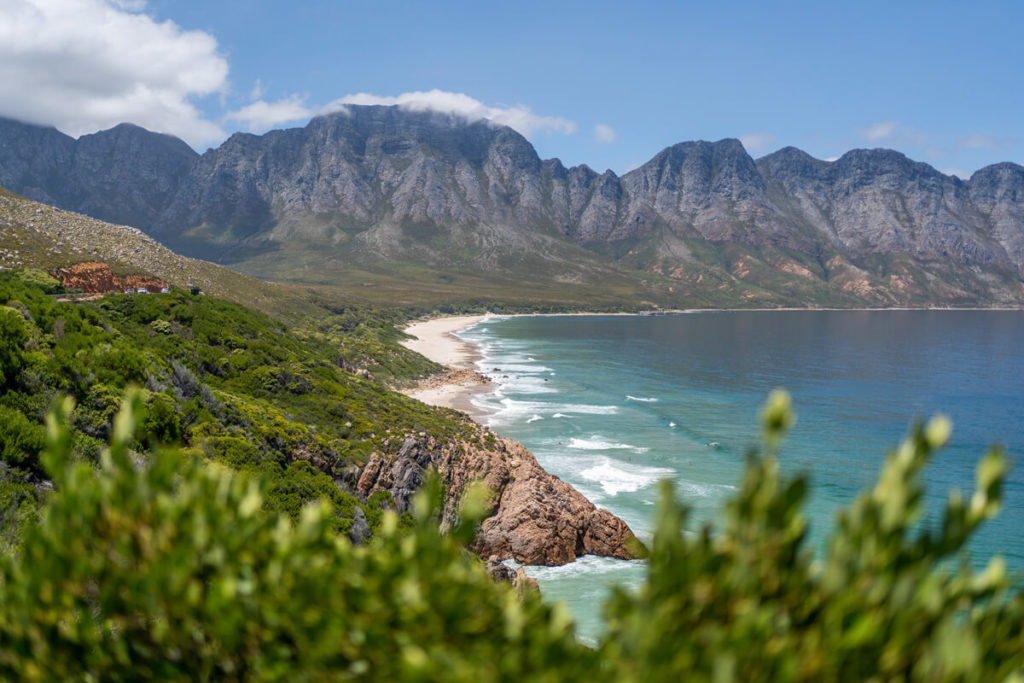
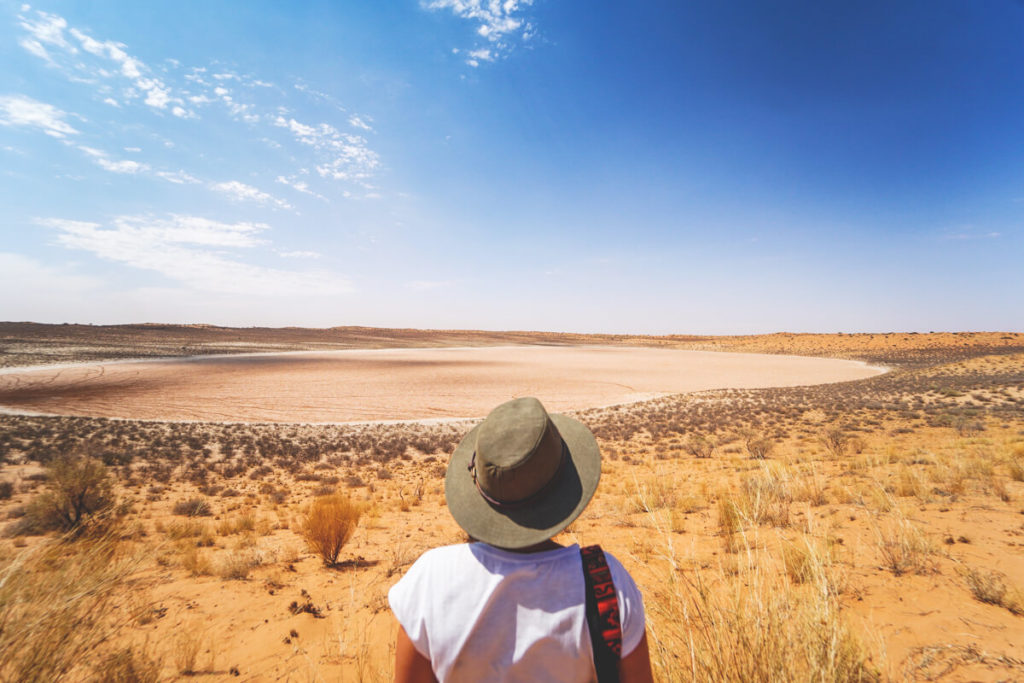
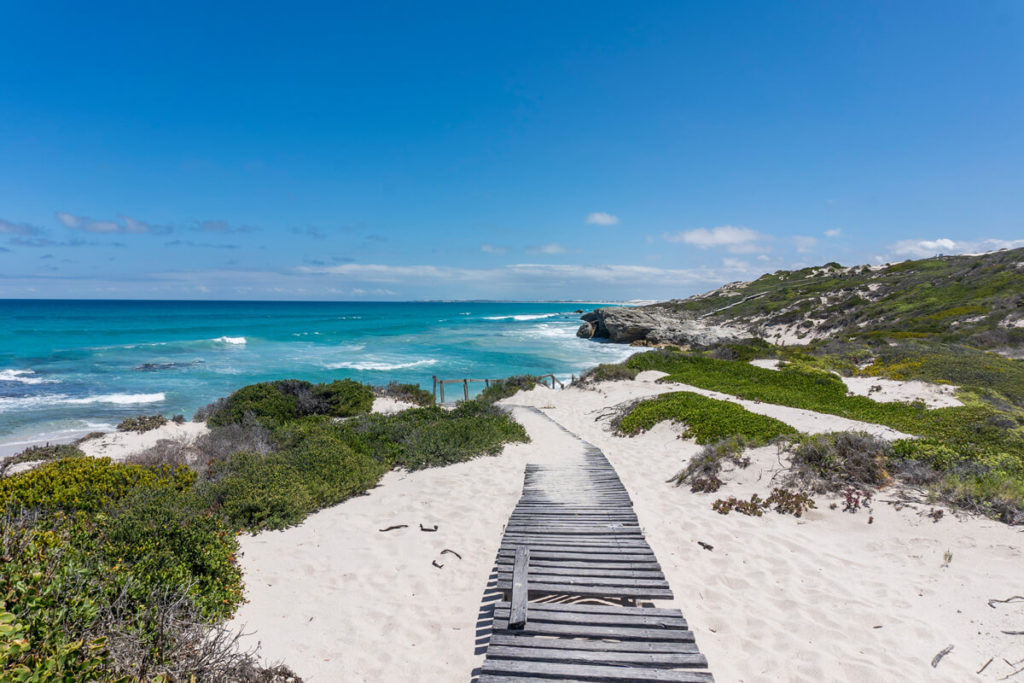
2. Best time to visit South Africa
The best time to visit South Africa depends on the activities you plan to do and the regions you want to visit. A trip to Cape Town and the Garden Route is best from November to March. If you want to get up close and personal with the Big 5 in Kruger National Park, the dry months of June, July, and August are ideal. You can find a detailed article about this here: ☞ The best time to travel to South Africa.
Best time to travel at a glance
- Kruger National Park: June, July, August, September, October
- Garden Route: October, November, December, January, February, March, April
- Cape Town: October, November, December, January, February, March, April
- Kalahari: June, July, August, September
- Johannesburg: April, May, August, September
- East Coast (Durban): May, June, July, August, September
- Drakensberg: September, October, November, March, April, May
3. Time Difference
During Central European Summer Time, there is no time difference between Germany and South Africa. Only during our winter time is South Africa one hour ahead of Germany (i.e., CET + 1 hour). When it is 10:00 a.m. in Germany, the clock in South Africa already shows 11:00 a.m. Since there is little or no time difference, you generally don’t have to worry about jet lag.
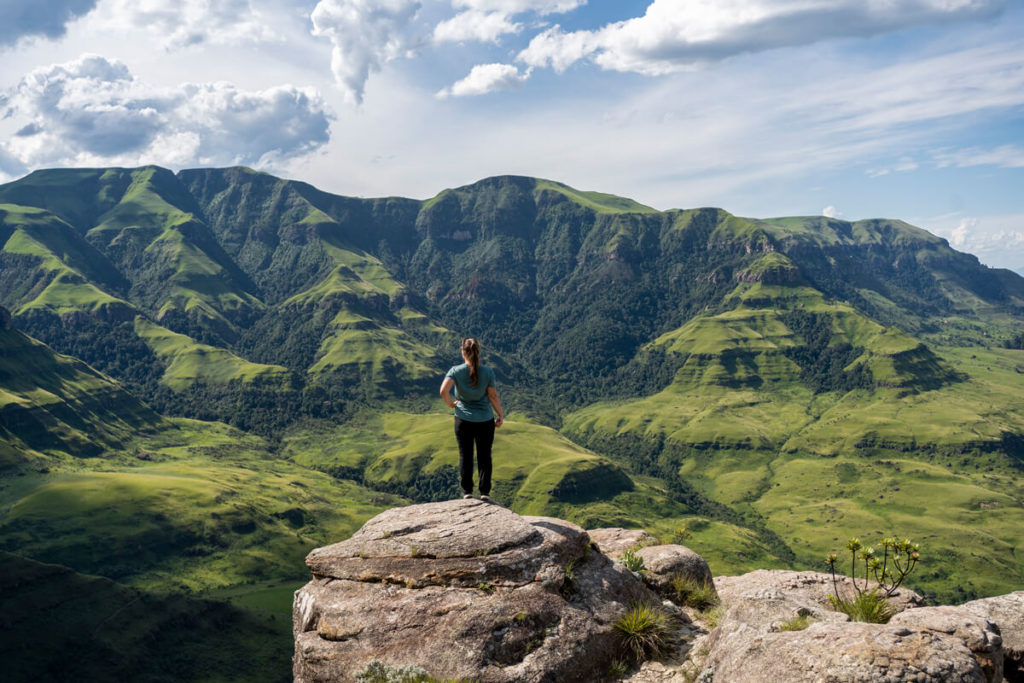
4. Arrival & Entry
Most international flights land at OR Tambo International Airport in Johannesburg, the largest and busiest airport in the country. Cape Town International Airport and Durban International Airport also offer international connections. We usually fly to Johannesburg or Cape Town, depending on your route.
The flight time is 10 to 12 hours, depending on your departure airport. From Germany, some airlines fly directly to Johannesburg or Cape Town, including Lufthansa, South African Airways, and Condor. Airlines such as KLM, British Airways, Turkish Airlines, Qatar Airways, and Emirates offer flights with stopovers.
As a German citizen, you do not need a visa to travel to South Africa if your stay is 90 days or less. Your passport must be valid for at least 30 days after your planned departure date and contain at least two blank pages. More on this here: ☞ Everything about entering South Africa.
5. Travel Length
We recommend at least 14 days (21 days is better) for your trip to South Africa to explore some of the beautiful highlights and not just rush from A to B. However, you shouldn’t try to explore the entire country in 14 days. We can tell you right away that you’ll spend most of your time sitting in the car and miss a lot. Instead, focus on one or two regions and enjoy them all the more intensely.
If this is your first time traveling to South Africa, we recommend the “classic route” with Cape Town, the Cape Peninsula, and the Garden Route. If you have enough time, you could even travel to Kruger National Park and go on safari there. Alternatively, you will also find numerous game reserves along the coast.
6. Travel Routes
☞ Here you will find the most beautiful travel routes through South Africa
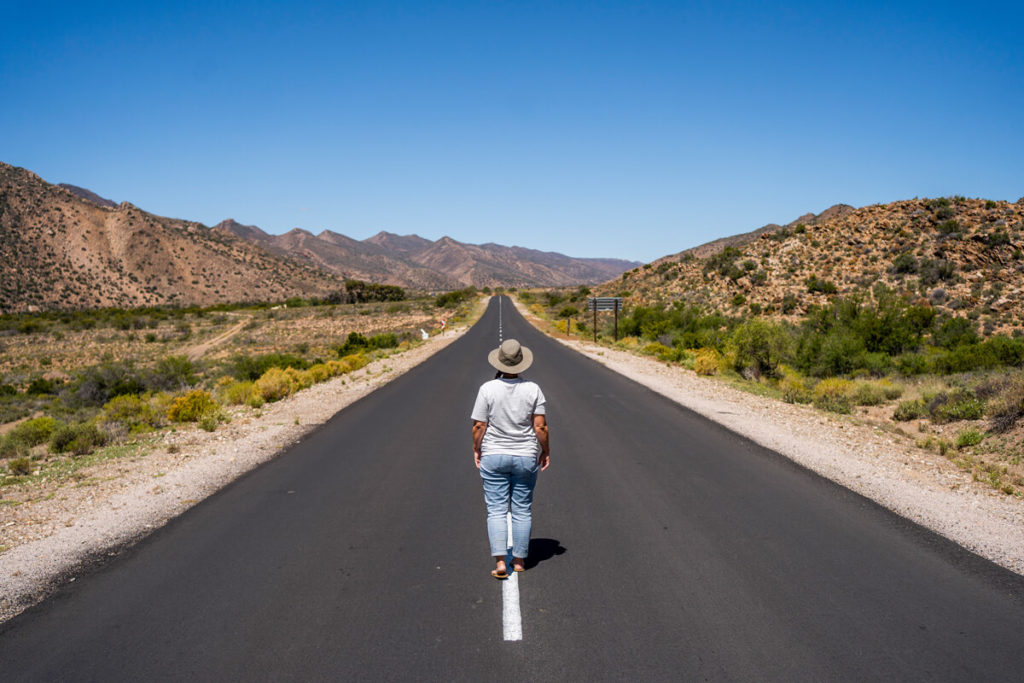
7. Rental Car & Left-Hand Traffic
You can easily travel around South Africa with a rental car. The road network is generally very well developed (especially in the tourist areas), and driving itself is not particularly difficult, despite driving on the left. We recommend booking your rental car in advance, for example, at www.billiger-mietwagen.de*.
Be sure to check the included services and the terms and conditions of the rental agreement, especially regarding insurance and mileage limits. Also, make sure you have a valid international driver’s license. This is officially required, even if often no one wants to see it.
We always book with the following services:
- All kilometers free
- Fair fuel policy (full/full)
- Comprehensive and theft protection with no deductible
- Glass/tire protection
- Underbody protection
- Liability sum: 1,000,000 EUR
- Offer bookable immediately
For your trip to Cape Town, along the Garden Route, the Route 62 and into the Winelands, you don’t need a special car. Actually, even a small car is sufficient if you don’t have too much luggage. For a bit more comfort, it’s best to book a compact or mid-size car. You only really need an SUV or four-wheel drive for the Northern Cape (Kalahari) and for the Sani Pass in the Drakensberg Mountains.
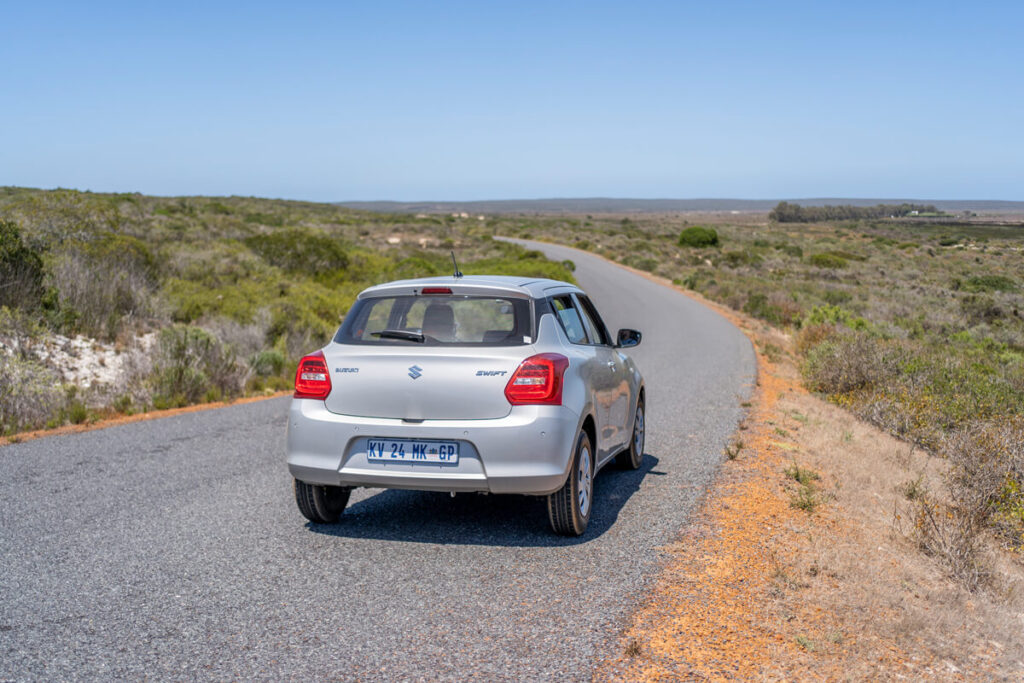
8. Book Accommodation
South Africa offers countless accommodations in all imaginable “shapes and colors.” Whether hostels, vacation apartments, Airbnb rooms, houses, cottages, rondavels, camping tents, luxury resorts, safari lodges, or hotel rooms – there really is everything. Before booking, always check the reviews on TripAdvisor and Booking.com* to avoid unpleasant surprises.
Also, make sure your accommodation is strategically located for the main sights and highlights. In cities like Cape Town or Johannesburg, proximity to restaurants, shops, and transportation can make a big difference. Besides, you don’t want to be constantly driving, taking Uber, or taking a bus.
Especially during peak season (December to January), you should reserve your desired accommodations in advance, as popular hotels and lodges can book up quickly. Outside of peak season, you can also travel spontaneously through the country and book your accommodations shortly beforehand. This is actually how we always do it.
If you want to stay overnight in a national park, you should book well in advance. You can book accommodations at government camps up to 11 months in advance on the South African National Parks website. You can easily book game drives on-site at the respective reception.
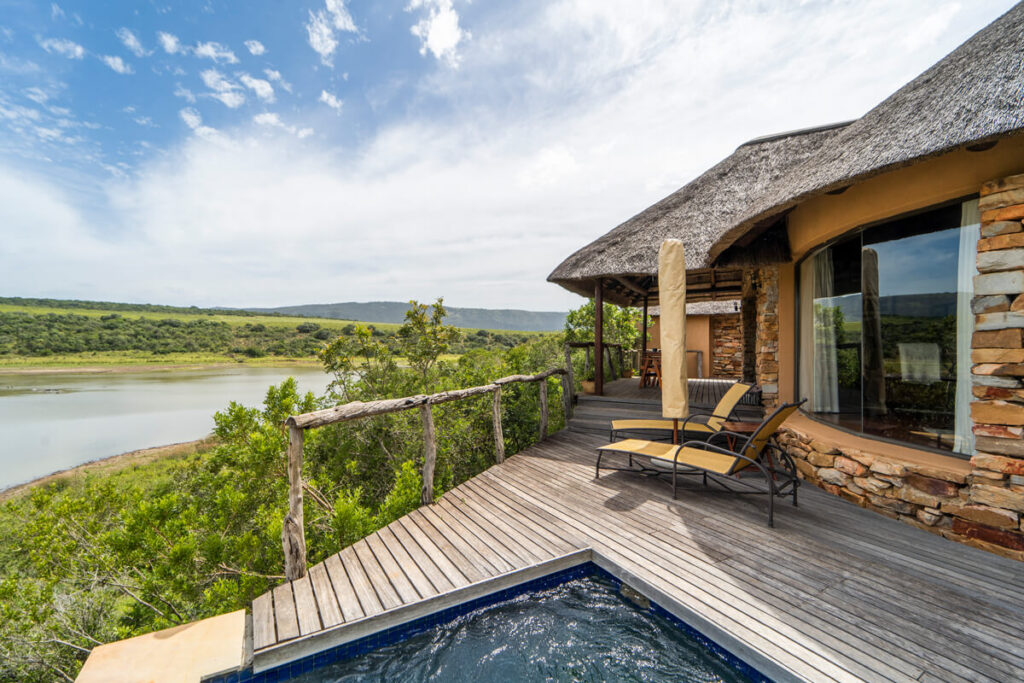
9. Activities & Excursions
There’s so much to experience in South Africa, and you can do most of it on your own. But there’s also a huge range of cool tours and excursions that are really worthwhile. Many people simply feel safer with a guide and in a group.
For popular activities like safaris, helicopter flights, or even Robben Island, it’s advisable to book in advance to ensure you get a spot. This is especially true during peak season. Also, make sure to book tours with established and reputable providers and be sure to read the reviews on platforms like TripAdvisor or Google.
We’re often asked if and how you can book national park entrance tickets in advance. Our answer: Not at all! You simply drive to the desired national park or reserve and pay the entrance fee at the gate. There is no maximum number for day visitors. At least, we’ve never heard of such a thing in the last 11 years.
10. Money & Currency
In South Africa, you pay with the South African Rand (ZAR) and currently get around 19 Rand for 1 Euro (as of October 2024). You should check the current exchange rate before your departure so that you know roughly how many Rand you’ll get for how many Euros when withdrawing money. We usually withdraw €100 to €150 when we arrive in a country and need some cash.
The available notes are in denominations of R10, R20, R50, R100, and R200, while coins come in denominations of 10c, 20c, 50c, R1, R2, and R5. You’ll often need small change in South Africa, for example in parking lots. There are usually parking attendants around who will help you in and out and also keep an eye on your car. A small tip is appropriate.
As for payment methods, credit cards like Visa and Mastercard are accepted almost everywhere, while American Express is somewhat less accepted. In more rural areas and small shops, you may also find that you can only pay with cash. With the right travel credit card, you can withdraw cash from ATMs for free.
Important travel tip: Always select the rand option at the ATM. Otherwise, you’ll often get a very poor exchange rate. It’s better to leave the conversion of your withdrawn amount to your bank. You can find a detailed article on this here: ☞ South Africa Currency – Withdrawing Money, Paying, and Credit Card.
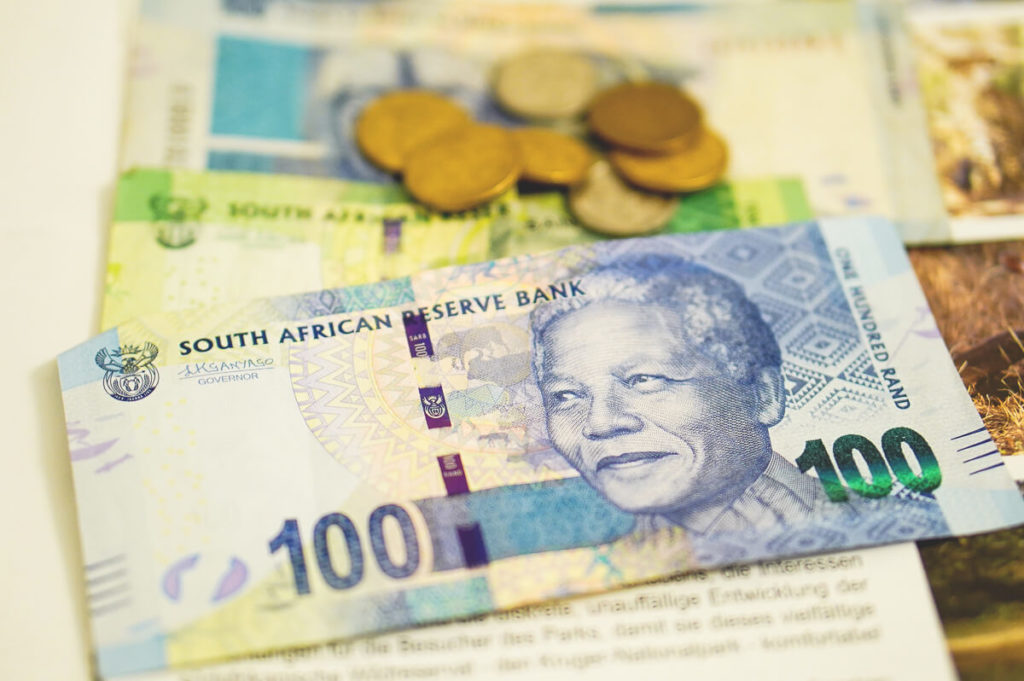
11. Tipping
One of the South Africa travel tips is, of course, the topic of tipping. In South Africa, tipping is widespread. You should always have some change in your pocket for this. Here is a brief overview of how much you can tip:
- Restaurants: 10–15% of the bill (depending on the service).
- Bars: 10% or small amounts per drink.
- Hotel staff: Porters: approx. 10–20 ZAR | Chambermaids: approximately 20–50 ZAR per day.
- Parking attendants/car attendants: 5–10 ZAR if they assist with parking.
- Gas station attendants: 5–10 ZAR for services (e.g., window cleaning, refueling).
- Tour guides/safari guides: 10–15% or approximately 50–100 ZAR per person for longer tours.
12. Health
No specific vaccinations are required for entry into South Africa. However, you should ensure that your standard vaccinations are up to date. In certain regions (such as parts of Kruger National Park), there is a risk of malaria. Check with your doctor to see if you should take preventative medication.
In cities, tap water is usually safe, but in rural areas, you should drink bottled water. We generally only drink bottled water in South Africa. Also, make sure to eat well-cooked food and wash or peel fresh fruit and vegetables thoroughly.
The sun can be very strong in South Africa. Use a high-factor sunscreen, wear a hat or cap, and sunglasses. The sun can be particularly harsh between 10 a.m. and 4 p.m. (depending on the region). Use insect repellent to protect yourself from mosquito bites, especially in humid areas. We always buy “Peaceful Sleep” spray when we get there.
13. Travel Insurance
Your health is paramount, and you shouldn’t skimp on it. For trips abroad, you should have valid international health insurance. Make sure the insurance provides sufficient coverage for medical emergencies, especially with regard to hospital stays and repatriation. Such insurance policies are available starting at around €15 to €20 per year (we use HanseMerkur*).
Travel cancellation insurance might also be relevant for you. This reimburses you if you have to cancel your trip for certain reasons (e.g., illness, accident). And honestly, anything can happen, and it would be so frustrating if you couldn’t go on your trip and were left with the costs.
You can find detailed information on this topic here: ☞ The most important travel insurance policies. Here are some well-known travel insurance providers that are active in Germany and are frequently chosen for travel:
- Allianz Travel*
- ADAC
- HanseMerkur*
- World Nomads
- Young Travellers
14. Power Adapter & Load Shedding
You will need a socket adapter for South Africa, as most European plugs (Type C/F) do not fit directly. Types D, M, and N are used in South Africa, with Type M (three-pin round plug) being the most common. You can buy a simple version of this adapter for €2 in almost any local supermarket. You can also get power adapters with USB ports cheaply online: Order a power adapter for South Africa*.
Another travel tip for South Africa: Before your trip, familiarize yourself with the topic of “loadshedding”! This is a controlled power outage that occurs due to power shortages in certain regions. Power outages usually last 2 to 4 hours per outage and can occur several times a day. More about this here: ☞ Loadshedding South Africa.
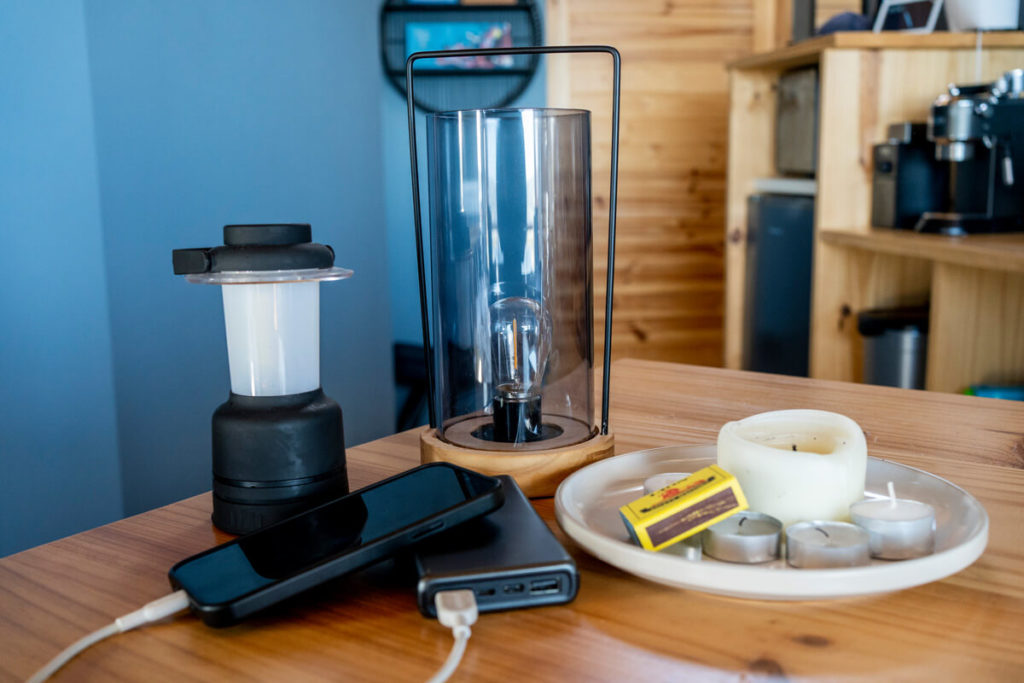
15. SIM card for South Africa
Perhaps you would like to be mobile in South Africa and have internet access on the go? SIM cards are available at airports, supermarkets, gas stations, or mobile phone stores. Buying them at the airport is often the most convenient, but usually a bit more expensive. There are packages for data, calls, and texts in various combinations. Prices vary depending on the provider and package size.
South Africa requires RICA registration (Regulation of Interception of Communications Act). When purchasing the SIM card, you must present your passport to register the SIM card. The local staff will set everything up for you; you don’t have to worry about anything. We’ve always had good experiences with this.
Vodacom has the best network coverage, especially in rural areas and on safaris. In cities, you usually have very good 4G coverage. And even off the beaten track, Vodacom is usually a good choice. Telkom and MTN didn’t perform very well in many regions, especially in terms of load shedding. Regarding network coverage in South Africa.
Telkom is cheaper, but has less network coverage. Here, the card often only worked well in cities like Cape Town, Johannesburg, or Durban. MTN also has very good network coverage, especially in urban areas and along the coast, but Vodacom has a broader presence.
16. eSim for South Africa
There are now numerous providers of e-SIMs online. If your device supports them, you can save yourself the trouble of buying a physical SIM card. We’ve had very good experiences with the provider Airalo*.
With an eSIM, however, you can’t make phone calls in most cases, but only surf the internet. It’s always good to be able to call someone in an emergency (rental car company, accommodation, tour guide, etc.). More information here: eSim for South Africa.
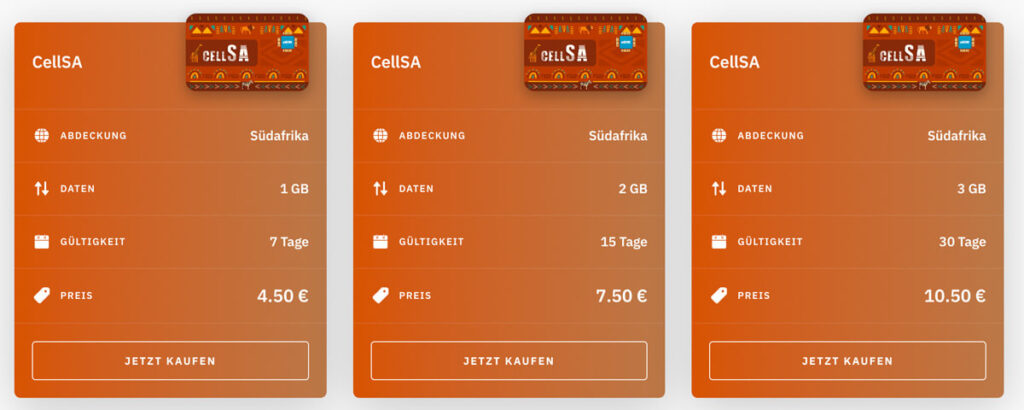
17. Travel Budget & Costs
The price level in South Africa tends to be lower than in many European countries, but varies depending on the region, type of accommodation, and activity. To give you an initial idea of the costs, we have created a brief overview.
Roughly speaking, you can expect €2,300 to €2,800 per person for 14 days (mid-range). The actual costs, of course, depend on your requirements and needs. It also plays a role how often you eat out during the day, how often you book activities and how often you stay in special accommodations.
A rough overview of the costs
- Return flight: 700 – 800 € per person
- Accommodation: 50 – 80 € per night (mid-range)
- Food & Drinks: €25 to €50 per day
- Self-catering: €50 – €70 per week
- Rental car: €25 – €35 per day
- Sightseeing: €150 (parks, museums)
- Safari: €50 – €70 (guided tour)
- ♀️ Activities: €150 (e.g. surfing, cycling, wine tour)
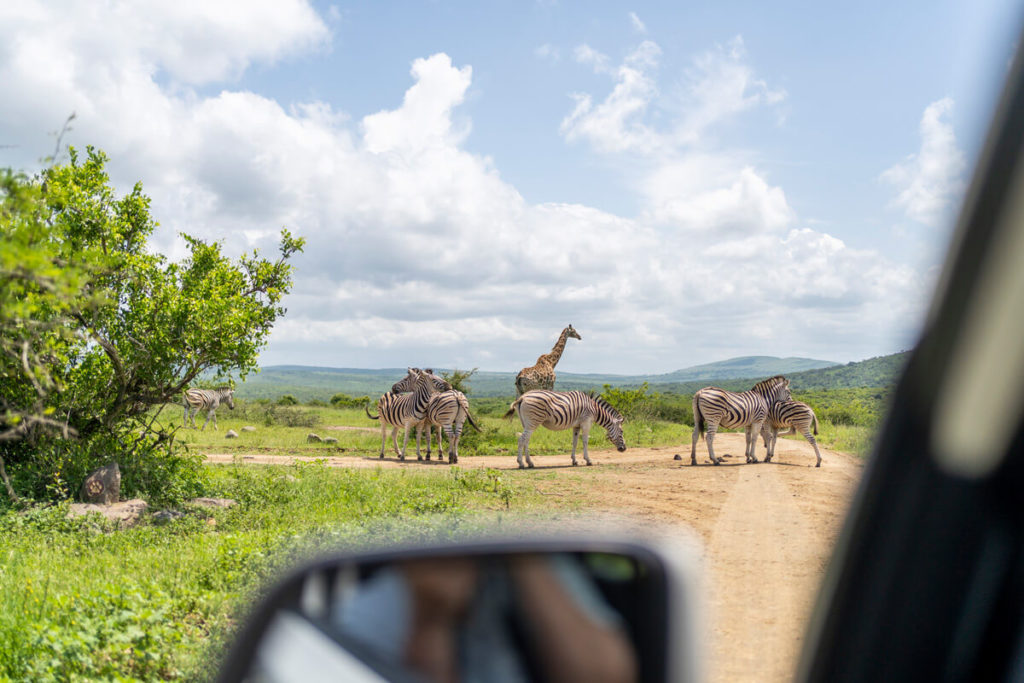
18. Safety in South Africa
The topic of safety is, of course, also part of our travel tips for South Africa. Readers often write to us saying they’re unsure whether or not to go on the trip, because “you hear and read so much.” We can tell you in advance: Don’t let the media drive you crazy!
South Africa is definitely not one of the safest countries in the world, and that’s not something to discuss. Especially in cities like Johannesburg, Cape Town, and Durban, there is a high crime rate, including theft and other offenses. However, most violent crimes are not directed against tourists, but take place in areas you should avoid anyway.
Although nothing has ever happened to us in South Africa in all our years, that doesn’t mean that nothing happens in general. Maybe we were just lucky. Overall, South Africa can be a safe travel destination if you prepare well, make informed decisions, and respect local conditions. You can find a detailed article on this here:
19. Recommended Apps & Tools
Want more South Africa travel tips? We use various apps for our trips to South Africa:
- Waze: Great navigation including information on construction sites, police checkpoints, potholes, etc.
- EskomSePush: Shows you exactly when the power will be turned off (load shedding).
- Uber: Quickly and safely call a taxi and pay with it.
- Booking.com: Find and book accommodation on the go.
- WeatherSmart: For current weather forecasts in various regions of South Africa.
- DeepL: Translation of text, speech, and even images.
- Komoot: Very useful for finding hiking trails and navigating.
20. Packing List for South Africa
To ensure you’re well prepared, you should consider a sensible packing list before your trip. South Africa offers a variety of climates, from warm beaches to cooler mountain regions.
Light clothing for hot days, a warm jacket for cool nights, good hiking boots, and sunscreen are just a few of the essentials you absolutely shouldn’t forget. You can find a detailed South Africa packing list with all the important tips here:
Travel Reading & Travel Guides
1. DuMont Travel Guide South Africa: This travel guide offers comprehensive information on the most important sights, the culture, and the history of the country. It includes practical tips on accommodations, restaurants, and activities. Add to cart*.
2. DuMont Picture Atlas South Africa: Detailed presentations of the individual regions, travel tips, information on the sights, maps, and much more. Plus large, beautiful pictures to immerse yourself in. Add to cart*.
3. Travel Diary South Africa: 70-page travel diary for on the go + inspiring travel quotes & small travel challenges. Add to cart*.
4. Breakfast with Elephants: Gesa drops everything, trains to become a ranger in Africa, and experiences an adventure full of breathtaking animal encounters, personal challenges, and unforgettable nights under the stars. Add to cart*.
5. The Elephant Whisperer: You MUST read this book! Award-winning conservationist Lawrence Anthony movingly recounts his life-changing relationship with a homeless herd of elephants he took in at his nature reserve in South Africa, where no elephants had lived for almost a hundred years. Add to cart*.
6. Long Walk to Freedom: An autobiography that describes the life and struggle of Nelson Mandela. An essential book for learning more about South African history and culture. Add to cart*.